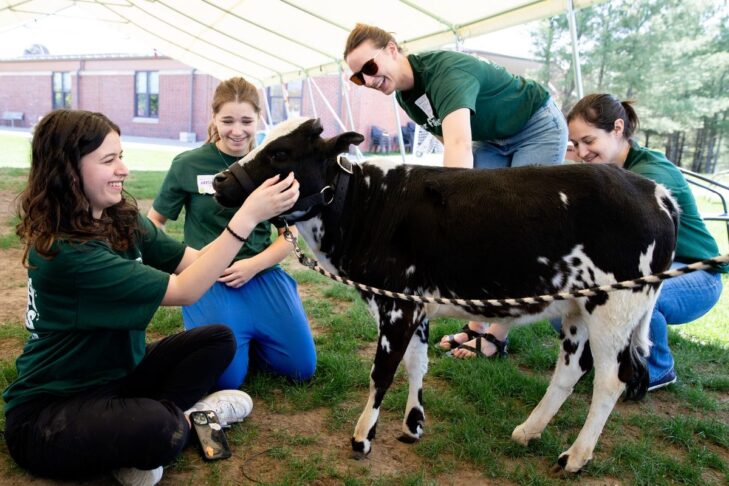What do I have to say about the mental health crisis?
Working for BaMidbar, a mental health organization that supports Jewish teens and young adults, I’m supposed to have answers. People expect me to have ideas about what’s needed; how to help.
They want my opinions on ways to fix the ravaged well-being of a generation of teens who’ve been through a pandemic; I’m asked how to bolster a community reeling from the events and global repercussions of a war happening so far away and, at the same time, so close to home.
And yet, as so many of us do, I feel that my hands are empty. I’m not a therapist.
Yes, I’ve spent the last six years working closely and collaborating with BaMidbar’s clinical team: implementing treatment plans, developing ways to leverage Judaism, the natural environment and experiential, outdoor and adventure-based activities to help our students and clients explore challenge, resilience and identity.
But, truly, as merely an educator by training, what have I to offer on my own?
The truth is that most of us are not clinicians. Even so, we inevitably sit in positions where we are expected to offer help and lend support.
Most of us do what we can while frequently feeling helpless, hoping for someone else to swoop in and make the big play; waiting for someone who is trained and capable of lifting our teens and young adults back out of the darkness, back into the wishful glow of the “before times.”
But this mental health epidemic will not be solved by clinicians alone.
I’ve learned during my time at BaMidbar that most theories on human behavior and mental health—in social work, psychology, neuroscience—return to a common theme: an emphasis on the significance of interpersonal relationships.
Engaging in positive relationships improves confidence, competence, self-efficacy, emotional intelligence, motivation, wellness and our ability to regulate in the face of conflict, stress, anxiety and the unknown.
In other words, we do better when we feel safe with and connected to other people. If we can create positive, meaningful, interpersonal connections, we can create caring communities. If we can create caring communities, we can also create communal environments that help individuals grow increasingly resilient over time.
And what is Judaism, if not an in-depth recipe for community and resilience?
Judaism is a tapestry of customs and languages, rituals and traditions, that connects us latitudinally to the people around us, while also placing us longitudinally on the timeline of the existence of the world. Judaism reminds us not only that we can overcome challenges together, but also that togetherness itself is often the secret to perseverance.
So, what can you, an individual member of the community, do to support the teens and young adults you find in your homes and classrooms, synagogues and youth groups, Hillels and camps?
You can bring them in.
You can build a rapport. You can leverage the ancient Jewish tools at our disposal to position yourself as one of the supportive, positive relationships they need to thrive.
That being said, we must remember: actively building communities and connections can be challenging and it is not one-size-fits-all. The same things that pull some people in have the potential to push others out.
How do we navigate this paradox?
It sounds simple, but BaMidbar’s field experience has demonstrated over and over again that crafting inclusive, caring spaces where each person, regardless of their identity or well-being, feels valued, respected and important is the necessary foundation upon which today’s teens and young adults can build healthy and stable lives.
At BaMidbar, we aim to notice who is being pulled in, just as we aim to notice who is being pushed out, and from there, we facilitate the hard work needed to bridge the gap between the two.
Simply put: Sit in community, because there is power in being together. And how lovely it is that each of us—not just clinicians—can contribute to that power.
Hinei matov umanaim shevet achim gam yachad.
How good and pleasant it is when we sit together as one.
Emily Heeren is the director of programs and partnerships at BaMidbar Therapy, which provides therapy for Jewish teens and young adults (13-28), community mental health education and professional development for youth-serving Jewish professionals.
This post has been contributed by a third party. The opinions, facts and any media content are presented solely by the author, and JewishBoston assumes no responsibility for them. Want to add your voice to the conversation? Publish your own post here. MORE


